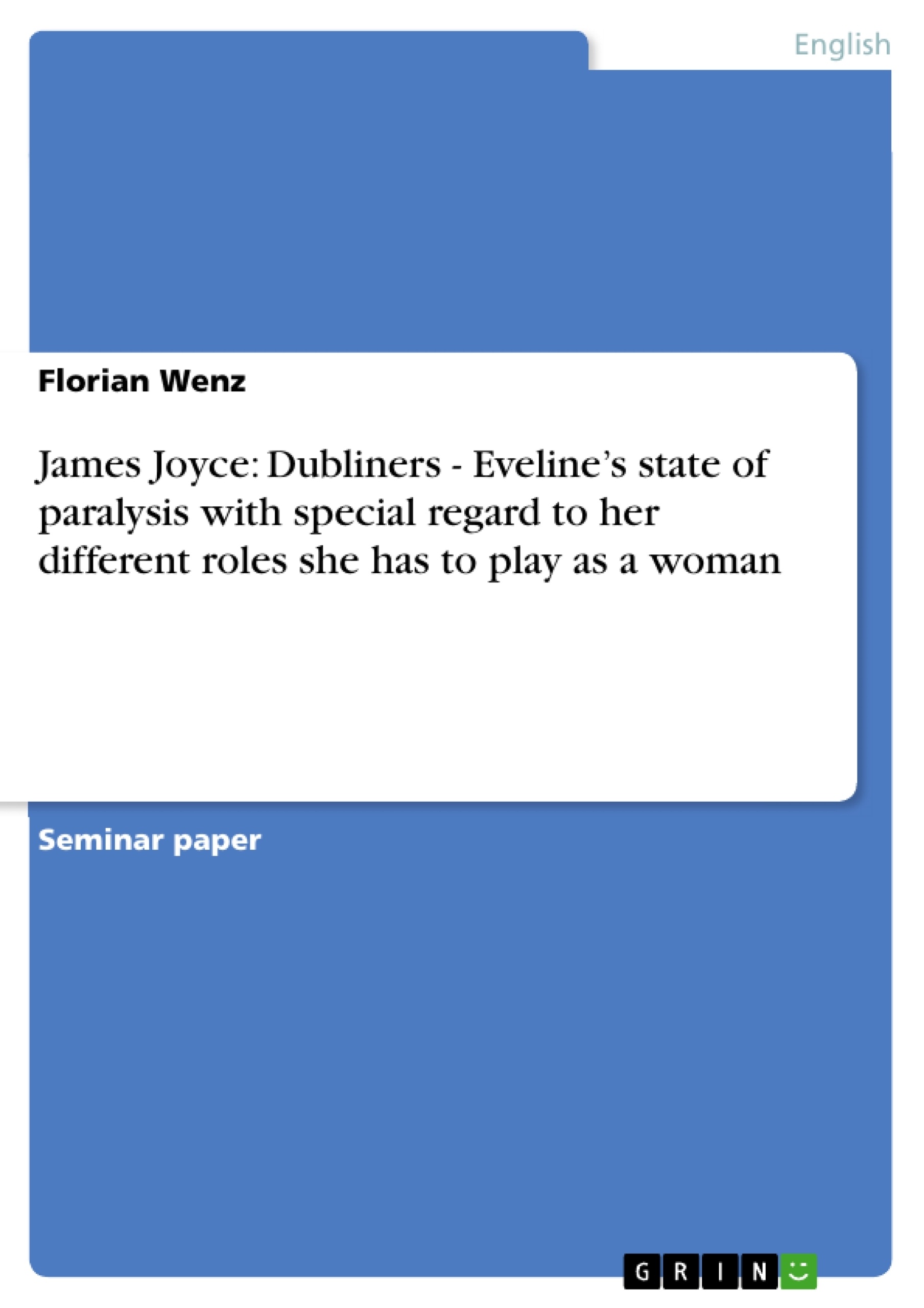In the following text I would like to give an approach to the paralysis of the main character in James Joyce’s short story Eveline. In doing so, I will take a look at the origin and the consequences of her paralysis and the different roles she has to play as a woman. In addition I’m going to examine the relationships that she has to the people in her closer environment i. e. her father and her “lover” Frank.
Table of Contents
- Introduction
- Main Part
- The term "paralysis"
- Origin of her analysis
- Consequences of her paralysis
- Relationships to the people in her closer environment
- Relationship to her father
- Relationship to Frank/Frank as a serious alternative?
- Eveline's different roles as a woman
- Conclusion
- Literature
Objectives and Key Themes
This text examines the paralysis of Eveline, the main character in James Joyce's short story "Eveline." It analyzes the origins and consequences of her inability to act, explores the various roles she plays as a woman, and investigates her relationships with her father and her potential lover, Frank.
- The concept of paralysis in the context of James Joyce's "Dubliners" and its specific manifestation in "Eveline."
- The origins of Eveline's paralysis, particularly her ingrained sense of duty to her mother, the influence of patriarchal norms, and the oppressive nature of her father's behavior.
- The impact of Eveline's paralysis on her choices, her relationships, and her overall sense of agency.
- The exploration of Eveline's different roles as a woman, encompassing daughter, caretaker, and potential partner, and how these roles contribute to her paralysis.
- The examination of Eveline's relationships with her father and Frank, particularly the power dynamics at play and the impact these relationships have on her decision-making process.
Chapter Summaries
The introduction provides an overview of the analysis, focusing on Eveline's paralysis, her roles as a woman, and her relationships with her father and Frank.
The main part of the text delves into the concept of paralysis in Joyce's work and its specific application to Eveline. It explores the origin of her paralysis, stemming from a promise she made to her mother, the influence of patriarchal norms, and the repressive actions of her father. The chapter also examines the consequences of her paralysis, highlighting her inability to act and the resulting emotional and personal stagnation.
The chapter on Eveline's relationships with her father and Frank examines the power dynamics within these relationships and the impact they have on her decision-making process. The analysis considers whether Frank offers a viable alternative to her current situation.
The final section analyzes Eveline's different roles as a woman, particularly as daughter, caretaker, and potential partner, and explores how these roles contribute to her overall state of paralysis.
Keywords
Key themes and concepts explored in the text include paralysis, patriarchal norms, duty, relationships, gender roles, agency, and decision-making. The analysis focuses on the influence of familial obligations, societal expectations, and individual agency on the protagonist's ability to act and choose her own path.
- Quote paper
- Florian Wenz (Author), 2005, James Joyce: Dubliners - Eveline’s state of paralysis with special regard to her different roles she has to play as a woman, Munich, GRIN Verlag, https://www.grin.com/document/192715




